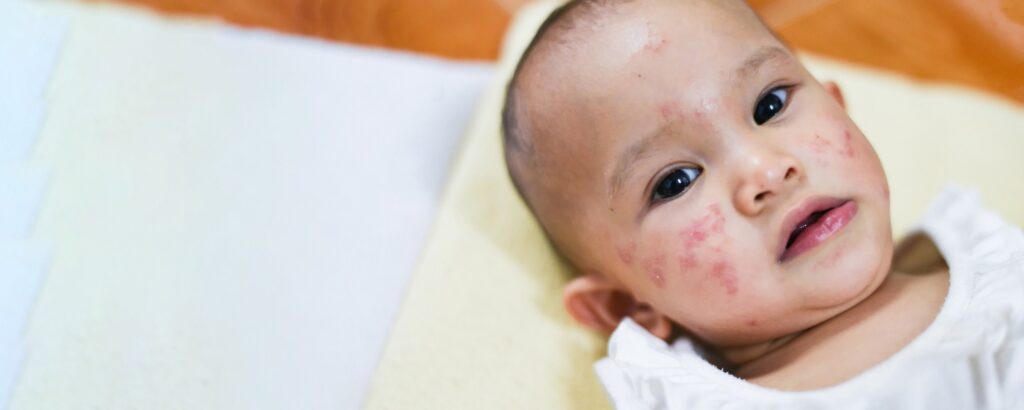
Top Pediatric Dermatologists in Dubai: What Parents Need to Know
Dubai is home to world-class healthcare facilities, and when it comes to pediatric dermatology, parents have access to some of the best specialists. A child’s skin is delicate and more prone to conditions like eczema, rashes, infections, and allergies. Finding the right pediatric dermatologist ensures that your child receives the best possible care for their skin health.
This guide will help parents understand the role of pediatric dermatologist in dubai, common skin conditions in children, and how to choose the best dermatologist for their child.
1. Understanding Pediatric Dermatology
Pediatric dermatology is a specialized branch of dermatology that focuses on diagnosing and treating skin, hair, and nail conditions in infants, children, and adolescents. Unlike adult dermatology, pediatric dermatology considers the unique physiology of a child’s skin, which is more sensitive and reactive to external factors.
A pediatric dermatologist is trained to address skin conditions that commonly affect children, including:
- Eczema and dermatitis
- Birthmarks and moles
- Acne and skin infections
- Allergic skin reactions
- Psoriasis
- Vitiligo
- Diaper rash and other infant skin conditions
2. Common Pediatric Skin Conditions and When to See a Dermatologist
Many skin conditions in children are temporary and may resolve on their own. However, some require medical intervention to prevent complications. Below are some common pediatric skin conditions and signs that indicate a visit to a dermatologist is necessary:
a) Eczema (Atopic Dermatitis)
Eczema is one of the most common skin conditions in children, causing dry, itchy, and inflamed skin. If your child’s eczema is persistent, leads to infections, or significantly affects their quality of life, a dermatologist should be consulted.
b) Acne in Children and Adolescents
Although acne is more common in teenagers, younger children can also develop breakouts. Severe acne may require specialized treatments, such as topical or oral medications, to prevent scarring.
c) Skin Allergies and Rashes
Many children develop rashes due to allergies, insect bites, or infections. If your child experiences recurring or unexplained rashes, a pediatric dermatologist can identify triggers and recommend appropriate treatments.
d) Birthmarks and Moles
While most birthmarks and moles are harmless, some may require medical evaluation to rule out potential risks. A pediatric dermatologist can assess and monitor any suspicious changes.
e) Psoriasis and Other Chronic Skin Conditions
Psoriasis, a condition that causes red, scaly patches on the skin, can also affect children. Early intervention can help manage symptoms and prevent discomfort.
3. How to Choose the Best Pediatric Dermatologist in Dubai
Finding the right dermatologist for your child involves more than just booking an appointment. Here are key factors parents should consider:
a) Qualifications and Expertise
Ensure that the dermatologist is board-certified and has specialized training in pediatric dermatology. Experience in treating children is crucial, as their skin requires different approaches than adults.
b) Child-Friendly Approach
A good pediatric dermatologist should have a child-friendly clinic environment and a caring approach to make young patients feel comfortable. Visiting the clinic beforehand or reading patient reviews can help determine if the doctor is approachable.
c) Advanced Treatment Options
Look for dermatologists who use modern diagnostic tools and offer a variety of treatment options, including non-invasive therapies. Laser treatments, phototherapy, and allergy testing are some advanced services offered by top dermatologists in Dubai.
d) Accessibility and Location
Dubai is a large city with many healthcare facilities. Choose a dermatologist who is conveniently located, whether in central Dubai or closer to your residence, to make follow-up visits easier.
e) Reviews and Recommendations
Word-of-mouth recommendations from other parents, online reviews, and testimonials can provide valuable insights into a dermatologist’s expertise and patient satisfaction.
4. What to Expect During a Visit to a Pediatric Dermatologist
A consultation with a pediatric dermatologist typically includes the following steps:
a) Initial Assessment
The doctor will ask about your child’s medical history, lifestyle, and symptoms to determine potential triggers and underlying causes.
b) Skin Examination
A thorough skin examination will be performed to assess the condition. If necessary, tests such as skin biopsies, allergy tests, or blood tests may be recommended.
c) Treatment Plan
Depending on the diagnosis, the dermatologist will recommend a personalized treatment plan, which may include:
- Topical creams and ointments
- Oral medications (for severe conditions)
- Lifestyle and skincare recommendations
- Specialized treatments such as light therapy or laser therapy
d) Follow-Up Care
Many pediatric skin conditions require ongoing management. The dermatologist may schedule follow-up visits to monitor progress and adjust treatments as needed.
5. Home Skincare Tips for Children
While professional treatment is essential for managing serious skin conditions, parents can also adopt good skincare practices to maintain their child’s skin health:
a) Use Gentle Skincare Products
Choose mild, fragrance-free soaps, shampoos, and lotions designed for sensitive skin.
b) Keep Skin Hydrated
Regularly moisturize your child’s skin to prevent dryness and irritation, especially in Dubai’s hot and dry climate.
c) Sun Protection
Always apply sunscreen with at least SPF 30 when going outdoors to protect against sun damage.
d) Avoid Harsh Fabrics and Detergents
Dress your child in soft, breathable fabrics and use hypoallergenic laundry detergents to reduce irritation.
e) Maintain a Healthy Diet
A balanced diet rich in vitamins and minerals supports skin health and helps prevent certain skin conditions.
6. Final Thoughts
Pediatric dermatology plays a crucial role in maintaining a child’s skin health. From common conditions like eczema and acne to more complex skin disorders, having access to an experienced pediatric dermatologist in Dubai ensures that children receive the best care possible.
By choosing a skilled and compassionate dermatologist, parents can effectively manage their child’s skin concerns and promote overall well-being. Whether dealing with allergies, infections, or chronic skin conditions, expert guidance can make a significant difference in treatment outcomes.
For parents in Dubai, taking proactive steps in skincare and seeking timely medical intervention can help keep their child’s skin healthy and problem-free.
Leave Your Comment